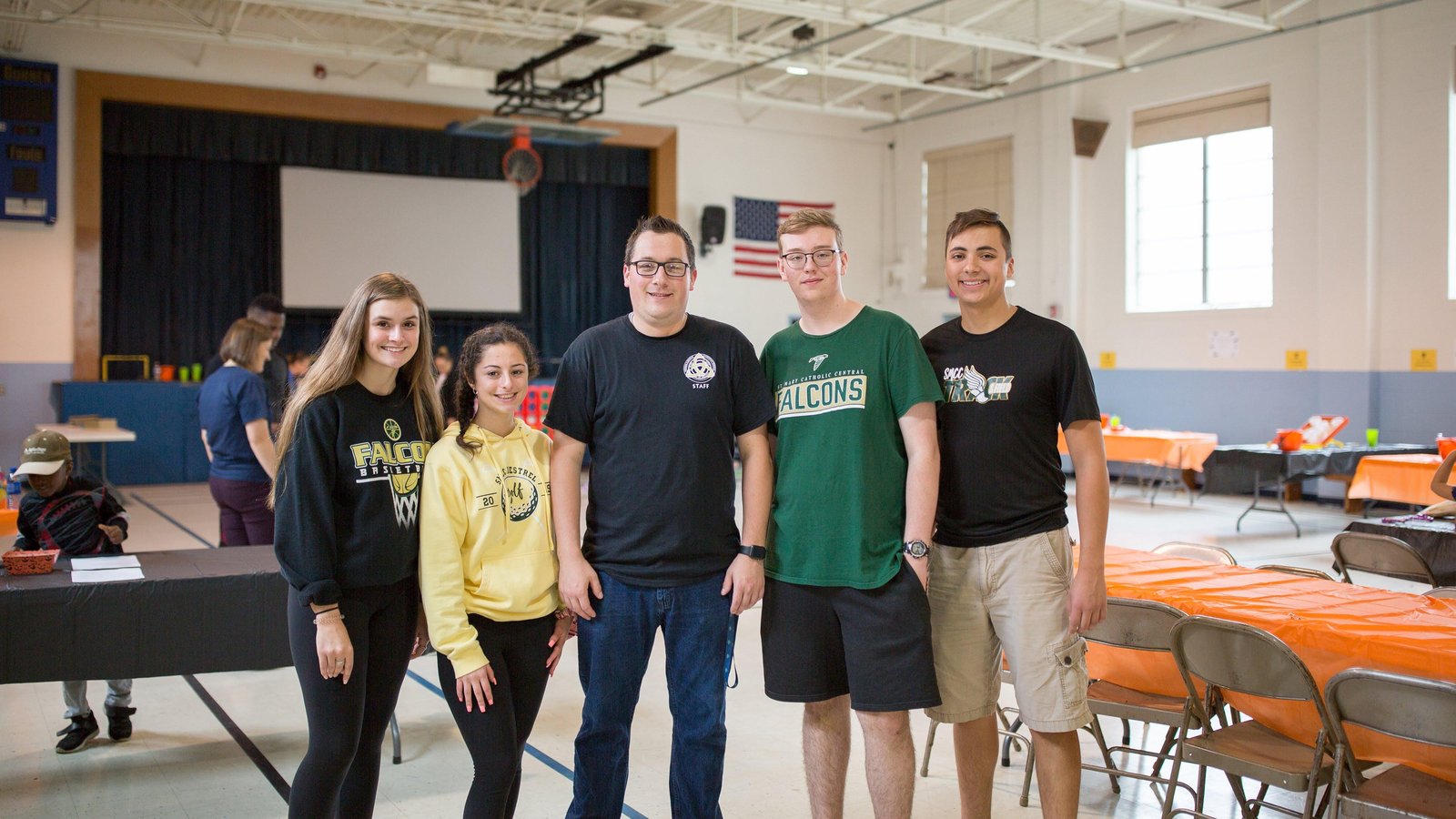
"For where two or three are gathered together in my name, there am I in the midst of them." -Matthew 18:20
Small Group Ministry plays a vital role in the Grow Stage of the Detroit Model of Evangelization. Parishes with small groups will tell you that they work for adults on many levels and for many reasons. People who minister to adolescents will affirm that utilizing small groups can be a positive addition to their youth ministry offerings.
Ministry is relational. Small Group Ministry is modeled after how Jesus, in his time of ministry, had a close group of people in his everyday life that he invested in and got to know closely. This is what young people need and desire today.
In small group settings, the lives of young people can be transformed through authenticity, delving into complex topics, and genuinely getting to know Jesus on a deeper level, alongside peers. What can't be shared in a large group setting can often be shared in a small group. This can happen as its own scheduled opportunity or as part of regularly scheduled youth gatherings, like a youth group night. Students may be willing to be more vulnerable and teachable in these situations. In a large group, people often hear the information, and in small groups, they unpack it.
Small groups in youth ministry can take on different forms. While this list is not exhaustive, here are some of the most common types to start discerning what would help the young people in your FOP grow:
Bible study groups are the most popular small groups in youth ministry. The group gathers for the explicit purpose of "learning" about the Bible from a group leader who teaches them lessons, and then they take time to discuss the impact and implications for their lives.
Social groups typically gather around shared interests, including wanting to build friendships or explore a particular activity (biking, art, softball, music, etc.). These groups can attract teens to youth ministry and/or build relationships with people in the group. As the social bonds are established, the discussion can delve into faith topics.
Accountability groups bond teens in their shared desire to live by the rules of the group because of the hope that doing so will produce change or transformation in their life. This trust in one another can also lead to encouragement and accountability for matters of faith. Please note, depending on what their focus is, a skilled adult may be needed to facilitate these groups.
Activist groups exist because of some social issue or community need. These groups have a purpose of working to bring funding, awareness, and help to the social issue or community need that the group is seeking to remedy or alleviate. These groups can dive into the rich wisdom of Catholic Social Teaching, how it applies to their everyday life, and address struggles they have.
Recovery or therapeutic groups gather around a common goal of recovering from a traumatic life event and/or addictions. This group requires a formal group leader with specific training and skills to help people gain the resources and abilities to heal from suffering.
A small group for young people is worth the effort. As you consider and get started with small groups for youth, keep these things in mind:
Youth ministry provides opportunities to encounter Jesus, grow in faith, and witness to each other. Each youth small group session allows teens dedicated time for reflection on how their life experiences shape their spirituality and the persons they become as disciples of Jesus Christ.
A small group is a safe environment where teens respect one another's opinions and gossip should not happen. Young people need and appreciate an environment where they can speak frankly and know it will stay in the group without judgment, where they know that they are safe to share and that they will be loved and helped rather than scolded or condemned.
Young people are at varying points developmentally. Consider having middle school small groups and/or high school small groups. This is not the ideal time to mix them together. You can have mature high school students help lead middle school small groups, though.
Small groups allow students to grow deeper in discipleship. Youth ministry should be done through the lens of catechesis and evangelization, and small groups allow teens to ask hard questions and process with one another.
Small groups allow discussion and interest to go at the pace of the group. Young people will dig deeper into the areas they connect with and discuss when they are ready.
When you get a bunch of teens together, there may be some goofing off—and that's okay. Allowing for some fun and acknowledging when funny things happen helps to get back on topic and build relationships.
Small group ministry provides an excellent framework for leadership development. As a small ministry group goes forward, the youth can take on more responsibility, whether leading the discussion or making the time together meaningful for the participants. This responsibility can also translate into youth taking a more active role in other ministries in the parish.
Shared leadership is how small group ministry is modeled. Youth facilitators who meet with adult small group ministry facilitators will see how members of a parish community are responsible for each other. As teens interact with a wide range of people in the parish, it will increase their sense of belonging to a faith home that truly treasures them as individuals and appreciates them as gifts to be celebrated, not problems to be solved. This will build appreciation for what they have in common and how they differ.
With the world bearing down upon youth in so many ways, small groups give teens the chance to grow closer to the Lord and each other. We all know that middle and high school years can be stressful, especially for young people today. The rest and rejuvenation found in a small group is priceless.







